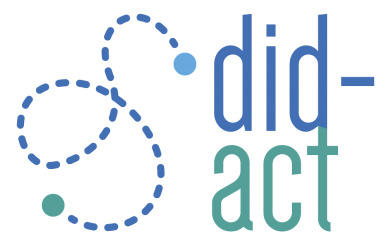How can I use the student curriculum as an educator
Overall, the DID-ACT clinical reasoning curriculum for students includes 25 learning units for novice, intermediate, and advanced students of health professions.
Why should I use the DID-ACT learning units?
The learning units provide a deep insight into the process of clinical reasoning and related topics such as cognitive errors, interprofessional collaboration, or considering the patient perspective. Clinical reasoning is an essential ability all healthcare professionals need in their daily work and our experience is that these topics are not explicitly covered in most health profession schools in Europe. The learning units of our curriculum can support you in including aspects of clinical reasoning explicitely into your teaching. Depending on your needs and the learning objectives you want to cover, you can integrate complete learning units or select some of the resources and activities.
Who can use the learning units?
The DID-ACT curriculum is designed for students of health professions, such as medical or nursing students, but also students of physiotherapy or occupational therapy can use most of the learning units. Learning units on novice level are suitable for preclinical students without prior experiences.
What is the format of the curriculum?
The learning units are designed in a blended learning format, i.e. a combination of self-study online phases and synchronous teaching sessions with a facilitator. However, you can also offer all or some learning units in a self-directed way for your students.
How can I access the curriculum?
Please go to https://did-act.instruct.eu and login via Shibboleth with your University credentials or register yourself with an email address (detailed instructions). You can find the student courses that are needed for the asynchronous phases and the self-directed learning in the category DID-ACT Clinical reasoning curriculum and all resources and information you need as a facilitator in this course.






